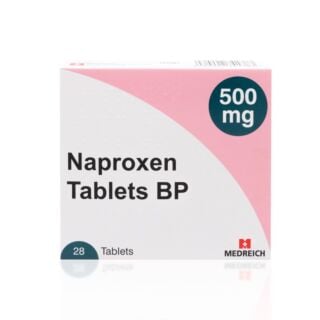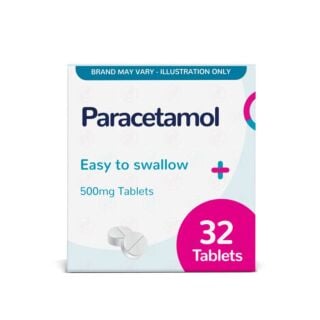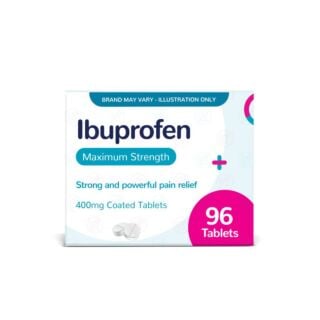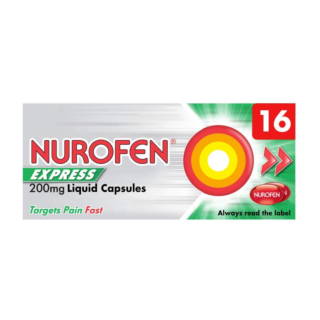Bad period pains? Here’s what to do for period pain relief

When you have period pain, all you can think about is how to relieve it. It can be inconvenient and, in some cases, unbearable.
Luckily, there are several things you can do to help with your cramps, such as applying heat, taking herbal remedies and taking over-the-counter (OTC) pain relief. With many medications available, knowing what to take for period pain can be confusing.
If your last period was uncomfortable or you’re dreading your upcoming period, you’re probably looking for the best period pain relief. This guide will tell you everything you need to know about easing your period pain…
The different types of period pain relief
Natural period pain relief
Many herbal remedies can offer you relief from period pains. Most herbal options provide anti-inflammatory and antispasmodic benefits, which reduce muscle contractions and swelling associated with period pain.
Home remedies for period pain
Period pain can be managed at home with several different remedies. At-home pain relief and relaxation methods are known to ease the pain that comes with your menstrual cycle.
Weird ways to help period pain
Sometimes, period pain can be eradicated in the strangest ways, ways that you would never think of. Sex and orgasms might be able to help with your period pain, or maybe even try acupressure.
Period pain relief pills and medication
Many types of period pain relief tablets can help with your cramps. Sometimes, your doctor might even recommend an oral contraceptive to help with your period.
Natural remedies to help
How does exercise help period pains?
Regular exercise during your period can help reduce cramps. Gentle exercise such as walking, swimming, cycling and yoga might relieve pain. Exercise doesn’t need to be strenuous to help.
When you exercise, your body releases endorphins, which are chemicals that help you feel good. This helps to relieve pain, reduce stress and boost your mood. Evidence suggests that exercising 45-60 minutes at least 3 times a week can reduce your period pain by around a quarter.
Exercise can also increase your heart rate and improve circulation, which can help reduce period pain.

Keeping hydrated will help to relieve pain
Drinking plenty of water and staying hydrated during your period can help prevent bloating, reduce fatigue and support your circulation, resulting in a less painful period.
Period cramps can feel more painful if you’re dehydrated; this is because dehydration is a common cause of period cramps.
Does ginger help with bad period pains?
Ginger has anti-inflammatory properties that can help ease menstrual cramps. Research has suggested that ginger can be as effective at treating menstrual cramps as ibuprofen. [2]
Increasing your ginger intake is easy. You can swap out your morning coffee for a herbal tea containing ginger or add it to soups and smoothies.
Home remedies for bad period pains and cramps
Herbal tea and period pain
Certain herbal teas, such as ginger, fennel and green tea, can help reduce period pain. Some herbal tea will also help with other symptoms associated with your period, including nausea and bloating.
Fennel tea is rich in vitamin C and quercetin, antioxidants known to reduce inflammation. Herbal teas contain multiple compounds that can soothe your body and ease discomfort.
How essential oils help with cramps
When inhaled or applied directly to the skin, essential oils interact with your body to help soothe and ease pain.
Lavender is known as one of the best essential oils for reducing pain. It's a natural anti-inflammatory and analgesic, meaning it can relieve minor aches and pains.
Some essential oils, such as clary sage, can help balance hormones and reduce the severity of period symptoms.
Hot water bottles and heat pads
Applying a hot water bottle or heat pad to your stomach can help alleviate period pains. Heat therapy relaxes the muscles in your uterus, increasing blood flow and reducing pain.
The lower abdomen is the best place to apply a heating pad to relieve pain. For extra relief, you can also use heat on your lower back.
Weird ways to help period pain
How sex and orgasms help with period pain
During sex, the endorphins released when you orgasm can instantly soothe period pain. As period pain is caused by your uterus contracting, when you orgasm, the muscles in your uterus also contract and release. The release can bring you relief from period cramps.
Sex occupies your mind and can also distract you from your menstrual cramps; it can even make your period lighter and shorter.
Acupressure
Acupressure is an alternative medicine that involves applying pressure to different body parts.
Acupressure techniques can help relax the uterine muscles and release endorphins. They can also balance hormonal fluctuations, which are known to contribute to period pain. Not only does acupressure help with period pain, but it can also help address any underlying causes.

Medication to ease period symptoms
Naproxen
Naproxen can be used to relieve period pain. It’s a non-steroidal anti-inflammatory drug (NSAID) that reduces the hormones that cause inflammation and pain.
To control your period pain, you should aim to take the lowest dose for the shortest time. You usually only need to take naproxen for 1-2 days when treating period pain.
Paracetamol
Paracetamol can help to relieve mild period cramps. It works by blocking the messages in your brain that tell you when you have pain. Some women may get relief from using paracetamol; however, if your period pains are more severe, then you might need to take a stronger medication.
Ibuprofen
Ibuprofen is another NSAID that can be used for period pain. It relieves pain and reduces inflammation. The anti-inflammatory properties of ibuprofen help to ease period pain.
Ibuprofen also slows down prostaglandin production. Less prostaglandin means less urine shredding, which leads to fewer cramps.
There are many options available when it comes to dealing with your period pain; sometimes, you might just need to find what works for you. If you suffer from a painful period, you’re not alone.
However, if your period pain is very severe and it’s impacting your daily life, you should always book in to see your GP.













